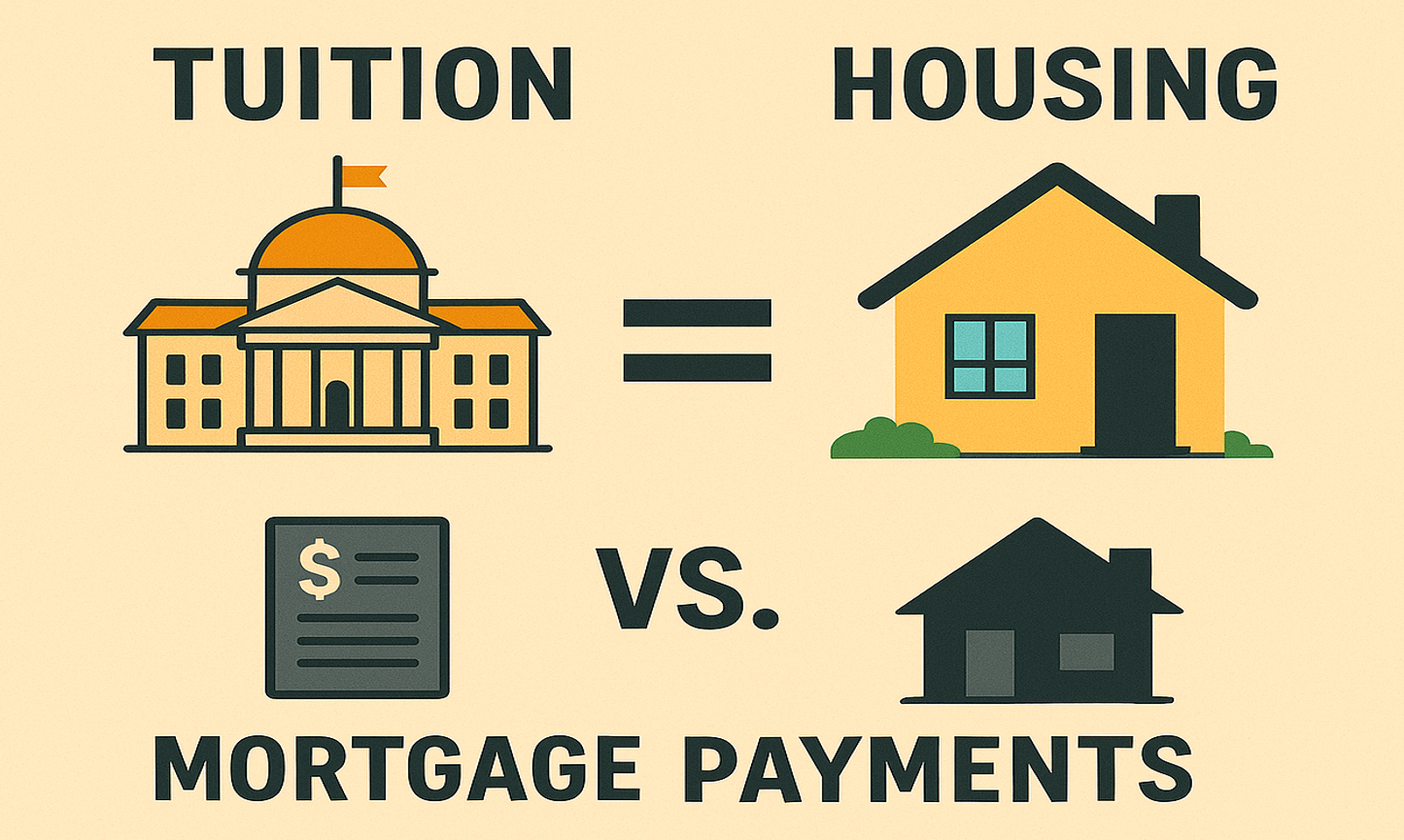In an intriguing twist to the traditional college housing narrative, a growing number of college towns are showcasing a surprising reality: the cost of owning a home may actually be lower than the expenses tied to on-campus dorm living. This revelation is prompting students, parents, and investors alike to reevaluate their housing options, considering the potential financial advantages of entering the real estate market. Let's delve into the economics of tuition-related housing versus mortgage payments, explore markets where this phenomenon is most prominent, and weigh the benefits and risks of purchasing property in college towns
The Economic Equation: Tuition Housing vs. Mortgage Payments
The cost of education in the United States extends beyond tuition; for many, housing constitutes a significant portion of college expenses. Traditionally, on-campus dorms were seen as a cost-effective, convenient solution. However, with the rise in tuition and housing costs, this is no longer a given. In some locales, monthly mortgage payments on a home can be comparable to, or even less than, the cost of a dorm room or apartment rental. This shift is particularly noticeable in areas where real estate prices remain modest, yet colleges charge a premium for on-campus living.

Where This Trend Shines?
Certain college towns across the country are leading this trend. From the expansive Midwest to select towns in the South, the disparity between dorm living costs and homeownership expenses is stark. These markets often feature affordable real estate, making the prospect of buying a home not only feasible but financially savvy. For example, cities home to large state universities, where the influx of students annually drives up dorm prices, present a ripe opportunity for purchasing

The Allure for Parents, Students, and Investors
The idea of owning a home while in college is gaining traction for several reasons. Firstly, it offers an opportunity to build equity in a tangible asset, rather than pouring money into non-recuperable dorm fees. For parents, it's a chance to invest in their child's future in a more concrete way, potentially saving on housing costs and even turning a profit by renting out additional rooms. For investors, college towns represent a continuous demand for housing, making it an attractive investment proposition.

Weighing the Benefits and Risks
Owning property in a college town comes with its set of advantages and challenges. On the plus side, homeownership can lead to significant savings over time, especially when considering the potential for rental income. It also offers students a more stable living environment, which can be beneficial for academic and personal growth. However, potential homeowners must also contend with the responsibilities of property maintenance, the risks associated with vacancies, and the potential for property value fluctuations. Furthermore, dealing with tenant turnover and ensuring consistent rental income requires diligence and can introduce an element of financial uncertainty

Is Homeownership the Right Move?
Deciding whether to buy a home in a college town hinges on several factors, including financial readiness, long-term goals, and the willingness to manage property-related responsibilities. For those considering this path, it's crucial to conduct thorough research, consider the market dynamics of the specific college town, and assess personal circumstances and preferences. With a thoughtful approach, owning a home during college years can be a financially astute and rewarding decision, offering benefits that extend well beyond graduation.
In essence, as the landscape of college housing evolves, the option of homeownership in college towns emerges as a compelling alternative to traditional dorm living, blending the prospects of financial savings with the invaluable experience of managing a real asset.





